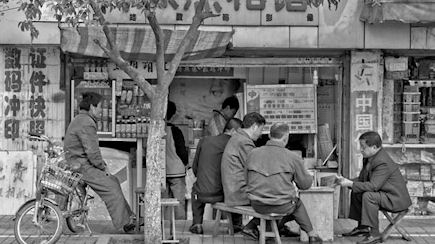This article first appeared in the Mar/Apr 2010 issue of World Gaming magazine.
Hong Kongers have a very busy lifestyle, we like to work hard and we like to play hard. Everyone needs some relaxation outside their busy work lives. Some westerners choose travel or sports to balance their life but the most common recreation among Chinese is playing games. After Mahjong the next two most popular games are card games called ‘Big Two’ and ‘Dou Di Zhu’ (Fight the Landlord).
Big Two is a game for four people, and usually one deck of playing cards is used. The 52 cards are dealt out to the four players (13 each). The 2 of Spades ranks the highest (twos ranking above Aces), and the 3 of Diamonds is the lowest (spades beats hearts beats clubs beats diamonds). Players can play single cards and also some card combinations like in poker. The game finishes when one of the four players plays out all his 13 cards.
Scoring is according to the number of cards left in your hand after the game finishes. The more cards you have, the more money you lose. If you play a $1 game, you lose $5 for five cards. The interesting thing about Big Two is the penalty increases as the number of cards left increases. For example, if you have more than eight cards left, your loss will be doubled, more than 10 cards left and your loss is tripled and if you have all 13 cards left you lose four times the amount. Losers in the game not only have to pay the winner, but also other players who finished the game with fewer cards.

Players agree a stake prior to the game being played. The stakes can get very high in this game and $500 or $1,000 per card is certainly not uncommon. In some huge games millions have been won and lost and the bigger the money the more exciting the game is. High stakes sometimes causes problems and can affect the relationships between players. Big Two can have the occasional problem of ‘soft play’. Soft play is when a player has good cards but chooses not to play them for social or other reasons not directly related to the game.
Dou Di Zhu (Fight the Landlord) is a game that originated in mainland China and is now getting popular in Hong Kong and Macau. Generally this game is considered fairer than Big Two, as the occurrence of soft play is less prevalent. Dou Di Zhu is a game for three players. It also has two more cards: the red joker (also called the “big ghost”) and the black joker (also called the “small ghost”). The red joker is the biggest single card followed by the black joker, followed by a 2 of any suit (just like in Big Two, 2s rank higher than Aces).
Suits have no value in Dou Di Zhu. Individual cards are ranked only according to their number. One player, the ‘landlord’, plays alone and the other two form a team. Dou Di Zhu has more card combinations than Big Two. For example, a sequence can be five cards of consecutive rank (like a straight in poker). You can also play three cards with a kicker, or a sequence of pairs. Also, you can use a ‘bomb’ (four cards of the same rank) or the ‘rocket’ (both jokers) to increase the game stakes. In a future issue of World Gaming I will explain exactly how the game is played.

The scoring of Dou Di Zhu has nothing to do with the number of cards left. It is a stake agreed upon before the game starts. If the landlord loses, he has to pay double, because he loses to two players who are in one team. Players can play small stakes just for relaxation, or can increase the stakes to make it exciting.
You can play Big Two and Dou Di Zhu anywhere. All you need is a deck of cards, a table, enough players and you are good to go. These games are very popular during festivals or dinner parties. People like to invite fellow card lovers to their place for a night of cards, and some players are now attending organised card rooms.
There is no gender or age barrier when playing Big Two or Dou Di Zhu. Generally speaking, those who play these games are men. Women tend to prefer Mahjong. You can play after a hard day’s work or study. Some frown upon this, believing offices and schools are not places to play card games, but both are traditional games that can be played anywhere. If you invest the time to learn these games properly, you will reap the rewards.







